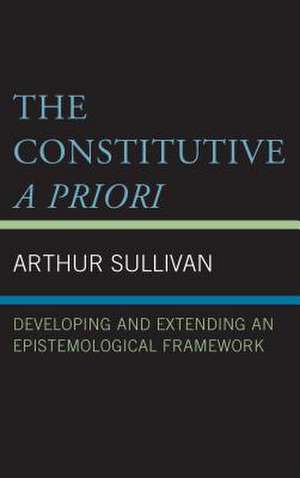CONSTITUTIVE A PRIORI DEVELOPICB
Autor Arthur Sullivanen Limba Engleză Hardback – iun 2018
Preț: 652.48 lei
Preț vechi: 847.38 lei
-23% Nou
Puncte Express: 979
Preț estimativ în valută:
124.85€ • 130.35$ • 103.33£
124.85€ • 130.35$ • 103.33£
Carte tipărită la comandă
Livrare economică 05-19 aprilie
Preluare comenzi: 021 569.72.76
Specificații
ISBN-13: 9781498547116
ISBN-10: 1498547117
Pagini: 216
Dimensiuni: 152 x 229 x 17 mm
Greutate: 0.54 kg
Editura: Rowman & Littlefield
ISBN-10: 1498547117
Pagini: 216
Dimensiuni: 152 x 229 x 17 mm
Greutate: 0.54 kg
Editura: Rowman & Littlefield
Notă biografică
Arthur Sullivan is associate professor of philosophy at Memorial University of Newfoundland.
Descriere
This book shows that the notion of the constitutive a priori provides a compelling way to understand some of the most significant lessons learned in twentieth-century philosophy. It demonstrates how the constitutive a priori orientation integrates and consolidates certain epochal insights of Wittgenstein, Carnap, Quine, Kripke, and Kaplan.
